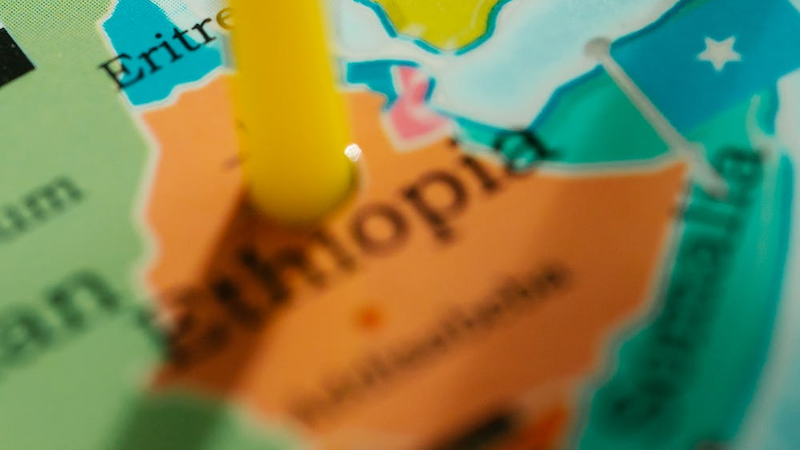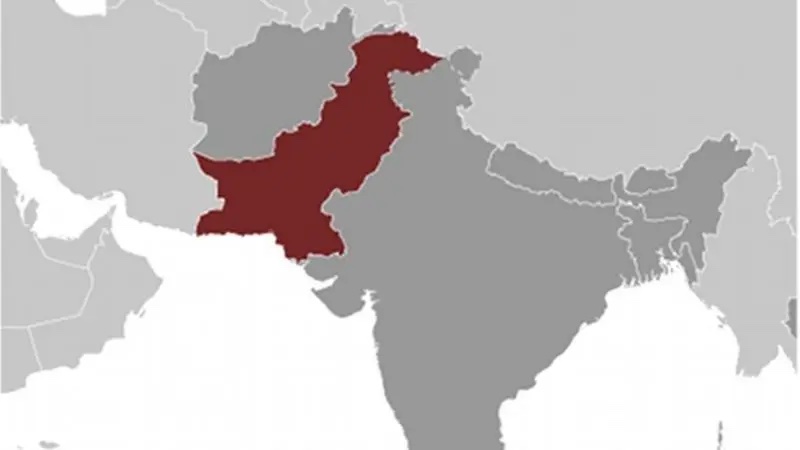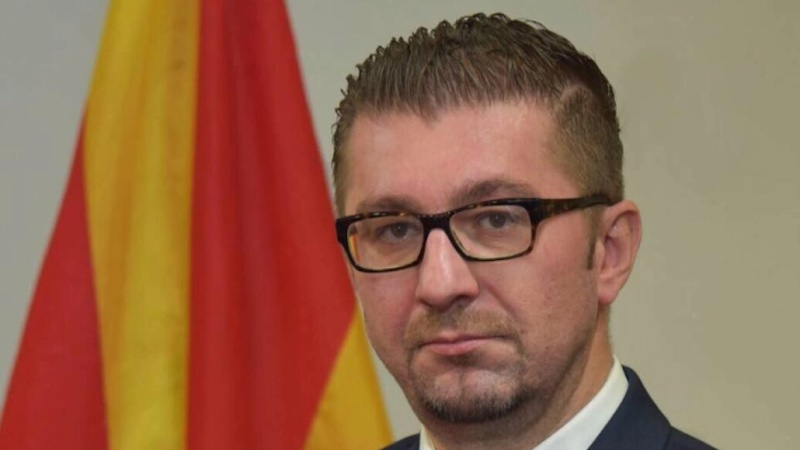Day: June 23, 2024

As the UK gears up for its next general election, immigration once again dominates political discourse. Labour leader Sir Keir Starmer’s pledge to “smash the gangs” involved in people smuggling echoes the Conservative government’s earlier promise to “stop the boats”. While these slogans may resonate with voters, they grossly oversimplify the complex challenges of managing migration and border security in modern Britain.
Starmer’s proposal to adopt a counter-terrorism approach to combat people smuggling is not novel. Similar strategies have been employed across Europe, from Italy’s use of anti-mafia units to the UK’s own Channel Threat Command. However, these efforts have yielded limited success in stemming irregular migration.
The reality is that most smuggling operations are far removed from the organised crime syndicates often portrayed in political rhetoric. Extensive research consistently shows that these networks tend to be loose, small-scale, and highly adaptable. When one group is dismantled, others quickly emerge to fill the void, posing a significant challenge to law enforcement efforts.
Moreover, the unintended consequences of aggressive anti-smuggling measures can be severe. Rather than reducing harm to migrants, such operations often displace routes to more dangerous areas and increase reliance on smugglers’ services. The Nationality and Borders Act of 2022, which criminalised irregular entry, has led to the prosecution of vulnerable individuals, including young asylum seekers, rather than the masterminds behind these operations.
Labour’s plan to establish a specialised border security command, bringing together various agencies, bears a striking resemblance to previous unsuccessful attempts to centralise counter-smuggling efforts. The Channel Threat Command, launched in 2020, and other interagency task forces like Project Invigor, have struggled to end smuggling as a practice. Even British and French cooperation on small boat crossings has yet to prove effective.
The pledge to scrap the controversial Rwanda deportation scheme is a step in the right direction. However, Labour’s commitment to expediting removals of those deemed ineligible for asylum faces significant hurdles. Bilateral agreements with countries of origin are essential for implementing such policies, and many of the top nationalities arriving via small boats hail from nations with poor human rights records or strained diplomatic relations with the UK.
It is crucial to recognise that the majority of individuals crossing the Channel in small boats would likely qualify for refugee status if their applications were processed efficiently. Home Office data supports this assertion, underscoring the need for a more nuanced approach to asylum policy that balances border security concerns with humanitarian obligations.
The fixation on deterring irregular migration through punitive measures overlooks the potential of expanding safe and legal routes. The success of schemes for Ukrainian refugees and Hong Kong BNO visa holders demonstrates that well-designed immigration policies can effectively manage large-scale movements without resorting to dangerous Channel crossings. No Ukrainian refugee has drowned in the Channel, and more than 120,000 people moved from Hong Kong to the UK since 2021 without sparking claims of an “invasion“.
As we approach the election, it is imperative that the debate on immigration moves beyond simplistic slogans and acknowledges the complexity of the issue. Migration encompasses a diverse range of individuals, from highly skilled professionals to those seeking humanitarian protection. A comprehensive approach must address labour market needs, international obligations, and the root causes of forced displacement.
The next government, regardless of party, will face the challenge of balancing public concerns about immigration levels with the economic and social benefits that well-managed migration can bring. This will require moving beyond enforcement-heavy approaches and investing in a robust, fair, and efficient immigration system.
Innovative solutions, such as expanding bilateral labour agreements, enhancing regional protection programmes, and improving integration support for new arrivals, should be explored. Creating legal and safe routes could potentially put smuggling operations out of business while addressing the country’s labour shortages, without risking more lives or compromising border security.
There is need for a more thoughtful and nuanced debate on immigration. While border security is undoubtedly important, it must be balanced with our humanitarian responsibilities and the potential benefits of migration. Political leaders should resist the temptation to oversimplify this complex issue and instead engage the public in an honest discussion about the trade-offs and challenges involved.
The path forward lies not in catchy slogans or quick fixes, but in developing a comprehensive, compassionate, and pragmatic approach to migration management. Only by acknowledging the multifaceted nature of this issue can we hope to craft policies that are both effective and aligned with our values as a nation.
It is remarkable that politicians appear insistent on repeating failures rather than learning from successes. The current government’s successful implementation of asylum and immigration schemes for people from Ukraine and Hong Kong demonstrates that creating legal and safe routes is possible and effective.
As we move towards the election, it is crucial that we shift the focus from punitive measures to constructive solutions. By addressing the root causes of irregular migration, expanding legal pathways, and improving the efficiency of our asylum system, we can create a fairer, more humane, and ultimately more effective approach to immigration. This is not only a moral imperative but also a practical necessity for a country that seeks to maintain its position on the global stage while upholding its values and obligations.

It was always clear that Ethiopia’s false historical narrative would one day catch up with it. The country that was Abyssinia and adopted Africa’s historical Greek name of Ethiopia in 1932 currently proves every sunrise and every sunset that it cannot hold the many nations that were held together by force in the past.
The war with Tigray, the current ongoing Amhara war and the much older Somali but currently sleeping Somali war and the many other nationalities that are stirring and seeking freedom from oppression, are all indications that things are no longer at ease or that things are falling apart to use the phrases of Chinua Achebe, Nigeria’s great author and literary man.
The center can no longer hold as fires flare up in almost every corner of the country. The Afar/Somali wars, the Benishangul uprising, the conflicts pitting the Amhara against the Tigrayans and vice versa, the involvement of Eritrean forces in West Ethiopia and the latest misstep of Ethiopia’s leader to sign an MoU with one of the regions of Somalia in an attempt to export the internal conflicts to neighboring countries, are all signs that Ethiopia needs to pause and take a deep breath. What has happened to the great nation that previous regimes maintained was forged out of internally generated ancient historical development?
Some call the misstep of the MoU an audacious move on the part of Ethiopia’s current leadership, but, indeed, one can only describe it as ill-thought of, undiplomatic, and reckless action that has put the ancient empire at risk. It has, indeed, aligned itself, almost childishly, with forces that probably wanted to see the end of Ethiopia and its breakup into its constituent nation states that were held together by force in the past. Note the country consists of 80 nations, some of which are large enough to stand alone as states, such as the Somali State, the Sidama State, the Oromia State, the Amhara State, the Tigray State and the Afar State and many others.
Emperor Haile Selassie would probably have come out of the grave forcefully should he have been informed of what is happening to the nation he forged through many means and ways – both legal and illegal, through diplomacy and skills that many Africans fail to achieve to this date.
Somalia’s claims on Ethiopia’s current territory, the Somali State of Ethiopia and which included parts of current Oromia State, was refuted by the international community and the African continent. What makes the current Ethiopian regime to believe that it can get away with; the illegal MoU that challenges all established norms of territorial integrity and sovereignty of countries? How does the Ethiopia regime, which is unable to hold its nations together and is involved in absolutely uncalled for killing process of its own populations – the Amhara, the Tigrayan, the Benishangul, the Afar and the Somali, and many others, so myopic as not to note that this can only lead to further disruption of life in the Horn of Africa States region?
The flagrant interference in the affairs of neighbors can only lead to further turmoil in the region, and indeed, challenges the very essence of the Somali people, who are not known to shy away from protecting their rights, lands, seas and, indeed, lives. The undiplomatic faux pas of the current Ethiopia regime with respect to the MoU only exasperates the ongoing civil conflicts in Ethiopia and does not add one iota of advantage for Ethiopia. A much better defence of Ethiopia would have been the befriending and collaboration with Somalia, which traditionally was the source of most troubles of the country. It is where the Ethiopian diplomacy should have been directed.
It only brought Somalia to announce recently that Ethiopian forces, which are part of Africa’s ATMIS mission in Somalia would not be allowed to remain in the country by the end of this year. Instead of listening to the drift, Ethiopia seems to be ignoring the wishes of the Somali people and has recently poured more forces into the country. This appears to be aimed at recreating the old Ethio-Somali antagonisms, which was nearly forgotten by the populations.
This is not in the interest of the region and the Ethiopian regime’s brinkmanship appears to be only exasperating the region’s already beleaguered political instability and weaknesses and opens more spaces for foreigners to interfere in the region. The Ethiopian regime seems to be slavishly following the wrong guidance of mauvais conseillers, which would only lead to more chaos in Ethiopia and the region.
The future of the region and its fragile peace needs to be supported through dialogue, discussions and cooperation, not only within the realm of each state but also collectively as a region. The old nation-state format of the region only led to miseries and more chaos and it is perhaps high time the region’s leadership moved away from those unnecessary and risky processes which only lead to more internal and regional upheavals.
The grave miscalculations of the current Ethiopia regime with respect to Somalia would have terrible consequences for the region, which many enemies of the region would love to see happen or realized. The Ethiopian regime should refrain from the wrong trail it has embarked on and take a step back from the ill-thought of steps it has so far taken, which has put the region on the edge of a steep precipice. A regional dialogue would probably slow down the downward slip, the moves of Ethiopia has caused. It is the only way to a peaceful co-existence in the region and a better hope for its populations.
Solstitium » exhibition 22-30 June 2024.
Two Georgian artists Julia Sanikidze and Mariam Shakarashvili exhibition ParisAddress: Heartgalerie-30, Rue de Charonne 75013 Paris, Bastille#GeorgianArt pic.twitter.com/NmJizlsWJe
— Notes from Georgia/South Caucasus (Hälbig, Ralph) (@SouthCaucasus) June 23, 2024
“We’ve got someone else who’s kind of nudging in now, so that may drive a little bit more friction between (China) and Russia,” Air Force General Charles Q. Brown, chairman of the Joint Chiefs of Staff, told reporters during an overseas trip.
“So, it’ll be interesting to see how these three countries — how this plays out.”
Analysts said the pact, signed Wednesday, could undercut Beijing’s leverage over its two neighbors and any heightened instability could be negative for China’s global economic and strategic ambitions.
On Thursday, Putin said Russia might supply weapons to North Korea in what he suggested would be a mirror response to the Western arming of Ukraine.
Brown acknowledged U.S. concern about the deal.
But he also tempered those remarks by noting apparent limitations to the accord and expressing doubt Moscow would give North Korea “everything” it wanted.
U.S. officials have said they believe North Korea is keen to acquire fighter aircraft, surface-to-air missiles, armored vehicles, ballistic missile production equipment or materials, and other advanced technologies from Russia.
“The feedback I have on the agreement — it was a broad agreement that’s not overly binding, which gives you an indication (that) they want to work together but they don’t want to get their hands tied,” Brown said.
The treaty signed by Putin and Kim on Wednesday commits each side to provide immediate military assistance to the other in the event of armed aggression against either one of them.
Putin has said Moscow expected that its cooperation with North Korea would serve as a deterrent to the West, but that there was no need to use North Korean soldiers for the war in Ukraine.
The United States and Ukraine say North Korea has already provided Russia with significant quantities of artillery shells and ballistic missiles, which Moscow and Pyongyang deny.
“We’ve got someone else who’s kind of nudging in now, so that may drive a little bit more friction between (China) and Russia,” Air Force General Charles Q. Brown, chairman of the Joint Chiefs of Staff, told reporters during an overseas trip.
“So, it’ll be interesting to see how these three countries — how this plays out.”
Analysts said the pact, signed Wednesday, could undercut Beijing’s leverage over its two neighbors and any heightened instability could be negative for China’s global economic and strategic ambitions.
On Thursday, Putin said Russia might supply weapons to North Korea in what he suggested would be a mirror response to the Western arming of Ukraine.
Brown acknowledged U.S. concern about the deal.
But he also tempered those remarks by noting apparent limitations to the accord and expressing doubt Moscow would give North Korea “everything” it wanted.
U.S. officials have said they believe North Korea is keen to acquire fighter aircraft, surface-to-air missiles, armored vehicles, ballistic missile production equipment or materials, and other advanced technologies from Russia.
“The feedback I have on the agreement — it was a broad agreement that’s not overly binding, which gives you an indication (that) they want to work together but they don’t want to get their hands tied,” Brown said.
The treaty signed by Putin and Kim on Wednesday commits each side to provide immediate military assistance to the other in the event of armed aggression against either one of them.
Putin has said Moscow expected that its cooperation with North Korea would serve as a deterrent to the West, but that there was no need to use North Korean soldiers for the war in Ukraine.
The United States and Ukraine say North Korea has already provided Russia with significant quantities of artillery shells and ballistic missiles, which Moscow and Pyongyang deny.
NPR News: 06-23-2024 7PM EDT

(UCA News) — A Muslim mob brutally killed another Muslim man and burned his body in Pakistan’s northwestern Khyber Pakhtunkhwa province on June 20 after accusing him of burning pages of the Quran.
The 35-year-old Muhammad Suleman was assaulted by hundreds of angry Muslims in Madyan, a popular hill station of Swat Valley of the province bordering Afghanistan.
Suleman was visiting the picturesque valley from Sialkot of Punjab province as a tourist when he was attacked, said Swat district police officer Zahidullah Khan.
Khan said that police rescued the victim and placed him under police custody, but the angry mob attacked the police station and beat him to death for allegedly committing blasphemy.
“Announcements were made by using the sound system of the nearby mosques, and that instigated thousands of people. Everything happened within 45 minutes,” Khan told UCA News.
“They resorted to aerial firing from roofs around, broke our gate, ransacked offices, set the building on fire, and burnt a police van and a motorcycle. Other vehicles were also damaged. Eight cops were injured. Attackers are being identified through CCTV footage and videos on social media,” he added.
Khan said that the body had been transferred to an undisclosed location.
“We have recovered some evidence but cannot disclose it because of strong religious sentiments,” he added. ;
Local Muslims reportedly rallied in the district to condemn the alleged blasphemy following Friday prayers.
Markets were closed in Madyan, and a large contingent of police were deployed in the Swat district to avert further violence.
Swat Valley, famed for its scenic landscape, earned infamy after the Pakistani Taliban occupied it and made it a stronghold before being flushed out by the military.
Malala Yousafzai, a Pakistani student who later became a campaigner for women’s rights and education, was shot in the head by the Taliban in 2012 in Swat Valley. She survived and won the Nobel Peace Prize in 2014 at 17.
Swat-based human rights lawyer Zigar Sher said the mob lynching based on the desecration of the Quran was shocking and surprising.
“There are so many unanswered questions. Why a tourist from Punjab would choose our soil to commit blasphemy,” he told UCA News.
“The tragedy would affect tourism and social life in our valley, already a victim of Talibanization. The infrastructure has still not been renovated after the 2022 floods, the worst in the country’s history,” he regretted.
Blasphemy is punishable by death or life sentence in Pakistan. However, no one has been executed for blasphemy so far.
In recent years, the South Asian nation of 241 million people has witnessed numerous cases of mob lynching.
The draconian blasphemy law in the Islamic nation is often used against Christian, Hindu, Sikh, and Ahmadi minority communities to settle personal scores.
Last month, an elderly Christian, Nazir Masih, in Punjab province’s Sargodha town, was attacked after being accused of committing blasphemy by burning pages of the Quran. He died in a hospital on June 3.
When a mob attacks;“nobody awaits due process of law. They have become prosecutors and executors themselves,” Imtiaz Alam, secretary of the South Asian Free Media Association, told UCA News.

(RFE/RL) — North Macedonia’s parliament on June 23 approved a new coalition government led by Hristijan Mickoski’s right-wing nationalist VMRO-DPMNE party.
A total 77 lawmakers in the 120-seat parliament;voted;in favor of the new government; 22 voted against. The remaining 21 lawmakers were absent during the balloting.
Including the 46-year-old Mickoski as prime minister, there will be 24 ministers in the government, five of whom will be deputy prime ministers.
Sixteen of the cabinet members are from the VMRO-DPMNE-led coalition Your Macedonia, six from the coalition Vredi block of Albanian opposition parties, and two from the political party Znam.
Mickoski’s VMRO-DPMNE received 43 percent of the vote on May 9, winning 58 seats — three short of a governing majority — and driving out the Social Democrats (SDSM) after seven years in power.
Mickoski then struck a deal to form a government with the ethnic Albanian parties and the left-wing nationalist Znam party, which together have 20 seats.;
In his closing remarks before the vote, Mickoski told the parliament that the citizens of North Macedonia “are fed up with bickering” and “need work, dedication, accountability, and concrete projects.”
He pledged to raise standards in the first 100 days and announced tax cuts, an increase in pensions, a 250 million euro ($267 million) project for municipalities, new foreign investments, and front against corruption.
After the government was elected, Mickoski and his cabinet made a statement in which the leader of VMRO-DPMNE used the constitutional name Republic of North Macedonia.
Referring to the word North as a “shameful adjective,” he said he would “do everything I can as long as I live to right this injustice,” but added that he is “powerless at this point” and must “capitulate…and say it.”
Gordana Siljanovska-Davkova, the president of North Macedonia, angered opposition leaders when she refused to use the country’s full official name at her inauguration on May 12.
Mickoski in his speech referred to the negotiating framework with the EU and the need for constitutional amendments to continue the accession process.
Mickoski, a former professor, has pledged to continue his efforts to shepherd North Macedonia into the European Union, but VMRO-DPMNE’s questioning of key agreements with neighboring Bulgaria and Greece — both which can block North Macedonia’s accession — could affect North Macedonia’s chances.
Defending the composition and program of the new government, deputies in the ruling majority described the vote as “huge” and “historic.”
The opposition in turn criticized the new government, saying its platform is far from the promises made by VMRO-DPMNE during the election campaign. SDSM deputies criticized it as manipulative and expressed doubts that the promised projects would come to fruition.
The new government’s first working day will be June 24 when the new prime minister and ministers are expected to take office. Mickoski announced a “furious start to projects,” including the promotion of new investments.
